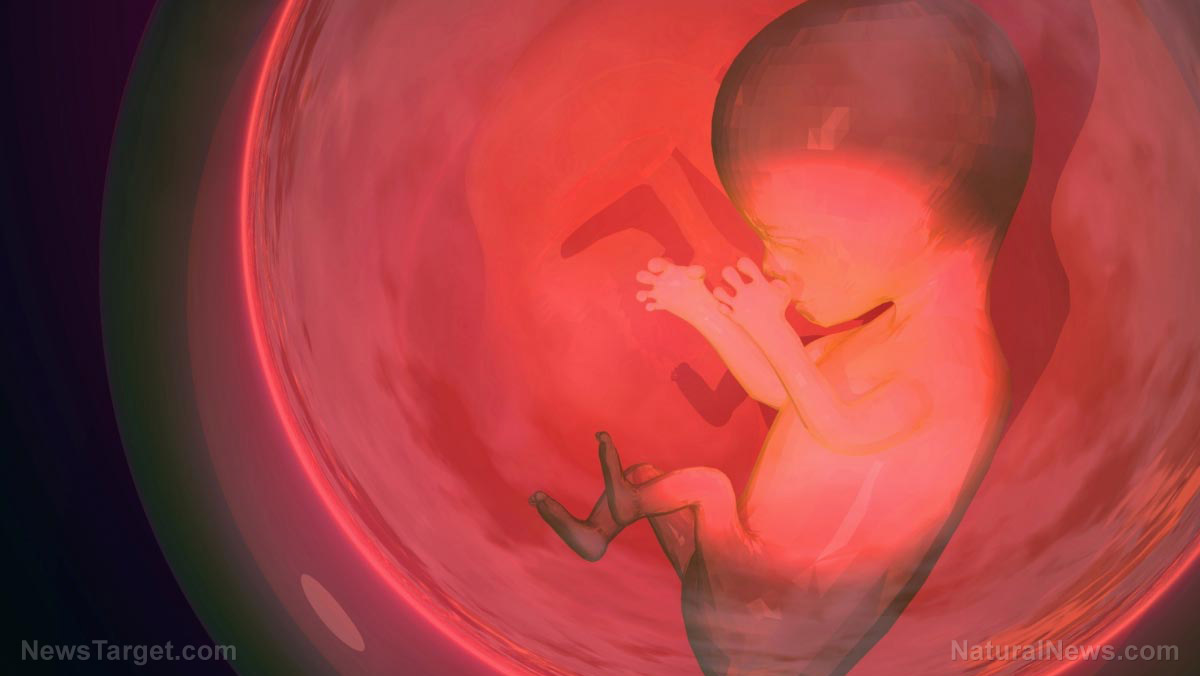 Parler
Parler Gab
Gab
Learn more about ectopic pregnancy
Pregnancy always begins with the fertilization of an egg. This fertilized egg usually attaches itself to the lining of the uterus. But in ectopic pregnancies, the fertilized egg implants and grows outside the main cavity of the uterus, usually in a fallopian tube. It can also occur in other areas, such as the ovary, abdominal cavity or the lower part of the uterus (cervix). Because of the location of the fertilized egg, an ectopic pregnancy can't proceed normally. The fertilized egg cannot survive in other parts of the body, and it may even cause life-threatening bleeding if left untreated. Most pregnant women don't notice any symptoms of ectopic pregnancy early. However, ectopic pregnancy does present the usual signs and symptoms of pregnancy such as a missed period or breast tenderness and nausea. (Related: Is the new "morning after pill" a Covid vaccine?) Women who take pregnancy tests find their results to be positive, but the pregnancy cannot continue as normal. As the fertilized egg grows in an improper place, signs and symptoms become more noticeable. Often, the first warning signs include light vaginal bleeding and pelvic pain. If blood leaks from the fallopian tube, there may also be shoulder pain or an urge to have a bowel movement, depending on where the blood collects and which nerves are irritated. There are some factors that make women more likely to have ectopic pregnancies, including inflammation, infection from sexually transmitted diseases, fertility treatments, previous tubal surgery and even the choice of birth control. One can't prevent an ectopic pregnancy, but there are ways to decrease the risk, such as limiting the number of sexual partners and using condoms to prevent sexually transmitted infections. Smoking is also a risk factor, so women are advised to quit smoking when trying to get pregnant.Is COVID-19 vaccine really safe for pregnant women?
A separate study that reported preliminary findings regarding the safety of COVID-19 vaccines in pregnant persons noted that the clinical trials for mRNA-based COVID-19 vaccines did not include pregnant women, limiting safety data in the group. With more pregnant women in the general population receiving the vaccines since, they were able to provide information to assess safety data. The results showed that 3,958 pregnant women enrolled in surveillance system registries, and that injection-site pain was reported to be the most common among pregnant women. However, the pregnancy outcomes were concerning. Of the registered women, only 827 participants completed their pregnancy. Out of these, 86.1 percent gave live birth, 12.6 percent had spontaneous abortions, 0.1 percent had stillbirths and 1.2 percent had other outcomes like induced abortion and ectopic pregnancy. VAERS data from December 14, 2020, to February 28, 2021, alone showed 29.9 percent pregnancy-related reports out of 221, most of which include spontaneous abortions – 37 in the first trimester, two in the second trimester and seven unknown or not reported. The authors concluded that data from three different surveillance systems – including VAERS – did not indicate any obvious safety signals regarding pregnancy or neonatal outcomes associated with the COVID-19 vaccinations. While not directly comparable, the proportions of adverse outcomes in vaccinated women were said to be similar to those reported in studies involving them before the pandemic. Experts suggest further studies are necessary, especially in women vaccinated in the first trimester. Learn more about adverse effects following COVID-19 vaccinations at Immunization.news. Sources include: GlobalResearch.ca MayoClinic.org OBGProject.comThe end of meat? Dutch “green” policies force dairy farmer to cull 95% of his herd
By Ethan Huff // Share
SHOCKING STATISTICS reveal the 4 most dangerous VACCINES ever created
By S.D. Wells // Share
Deborah Birx hid covid info from Trump, altered CDC guidelines without approval
By Ethan Huff // Share
Germany’s birth rate improbably falls by 11% in the first quarter of 2022
By Lance D Johnson // Share
Governments continue to obscure COVID-19 vaccine data amid rising concerns over excess deaths
By patricklewis // Share
Tech giant Microsoft backs EXTINCTION with its support of carbon capture programs
By ramontomeydw // Share
Germany to resume arms exports to Israel despite repeated ceasefire violations
By isabelle // Share










